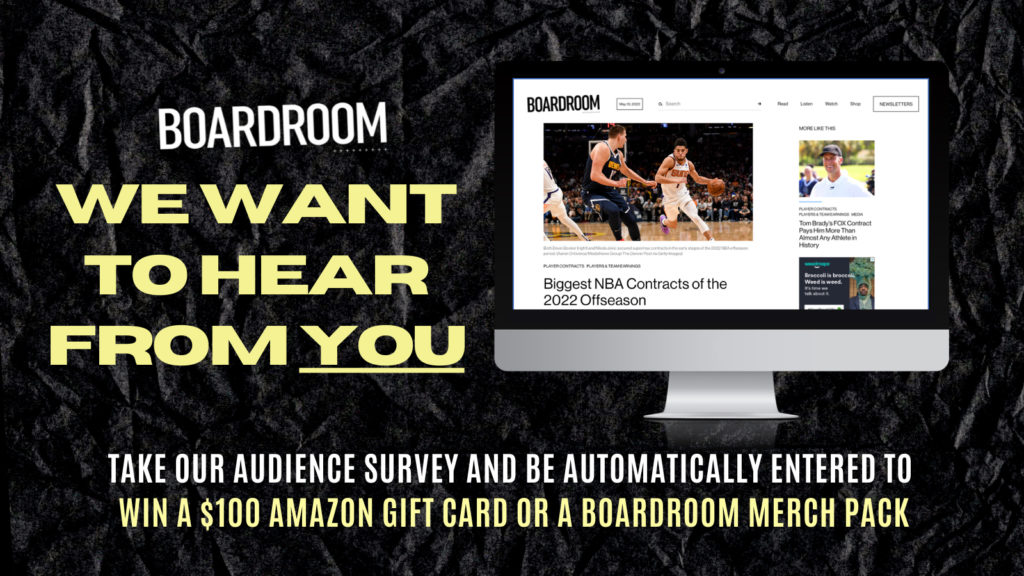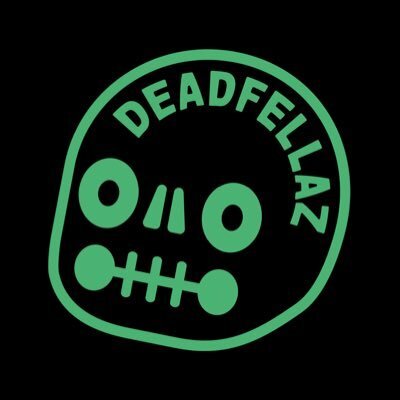The prominent Web3 leader talked about her growing NFT community, how she got into Web3, and the next phase for Deadfellaz.
Less than a year ago, the Web3 world met Deadfellaz: a gender-neutral NFT project that has since taken the industry by storm.
Deadfellaz co-founder Betty told Boardroom that she and her partner, Psych, conceptualized Deadfellaz pretty quickly: The project’s inaugural collection included 10,000 non-fungible tokens, and while all Deadfellaz NFTs feature green as their base color, the gender-neutral NFTs are derived from 300 randomly generated traits and attributes.
“I was seeing what was going on with the PFP stuff, and I just didn’t see anything that I personally wanted to use. There was not really anything that represented gender as a spectrum,” Betty told Boardroom in May at VeeCon 2022 in Minneapolis. “There wasn’t anything that gave off my personal vibe so I said, ‘We should do one.'”

After running Deadfellaz anonymously for roughly nine months, Betty revealed herself at VeeCon, and Gary Vaynerchuk himself even snagged some NFTs from her project.
Boardroom spoke to Betty about her growing community, how she got into Web3, and the next phase for Deadfellaz.
This interview has been edited for length and clarity.
MICHELAI GRAHAM: What were you doing before launching Deadfellaz, and how did you get your start in the NFT industry?
Betty: Before I even knew what NFTs [were], I was co-director of a creative production agency that I ran with my husband Psych, who is the artist and [other] co-founder of Deadfellaz. Aside from that, I was organizing in the community, making safe spaces for women and gender-diverse people, advocating for [different] groups, all kinds of stuff. A lot of the work that we were doing was not pandemic-proof, and so we lost a lot of very big contracts. We were pushed into a corner a little bit.

In January last year, some artists in Psych’s art collective had been working with NFTs. They explained to him what they were, and he explained it to me, and it was an epiphany moment. I was waiting for something exciting, something new, and it just felt to me like a big shift. A new opportunity for the application and appreciation of digital art and creativity.
MG: How did you and Psych decide to make the Deadfellaz collection gender-neutral?
Betty: Because nothing else was! Stereotypically female traits that you would see were borderline offensive. It would be like a bra or lipstick or a wig. I’m not going to use that for my digital identity. That’s fine, but it wasn’t for me. I wanted anyone to be able to come to Deadfellaz and find something they identified with.
MG: Can you tell me about the different Deadfellaz collections and how you’re building community around them?
Betty: The inclusivity part of what we do is that I don’t like to be too exclusive of people. So, if you hold any of the collections under our umbrella, you have access to all of the metaverse things that we do, all of the in-real-life things that we do — the Discord, all of that — so that you can connect with the community.

Aside from that, it’s just layers. The original Deadfellaz [holders] have the most utility. They have the highest access to everything. So, when we released Deadfrenz, they got to mint. And then, if you had a Betty Pop Horror or hold a season one Halloween infected collection, then you could get a reserved Deadfrenz. So, it just goes like that. We design it in tiers but always airing on an inclusive angle.
MG: How are you managing the different rollouts and still fostering a strong community?
Betty: We’re just making sure that everything that we release has an intention and a real reason. I think a lot of people, when they release secondary collections, it’s just primarily for that injection of capital. That’s not what we did. There are separate purposes for those secondary collections for us. On the community part, we just make sure that we stick to our roots and make sure that the focus is always on creativity and community. We hope to use everything we do as a vehicle for social change and innovation and make sure we’re pushing the space forward.
MG: Why did you decide VeeCon was the right time and event to reveal your identity?
Betty: I was presented with the opportunity to be here. Initially, I wasn’t really sure, to be honest, because I live in Australia. But I think going back to the celebration of what’s going on. I mean, look out there; it’s like a carnival. It’s just so fun, and I think that my community would want me to be here.
I just really value in-person connection, and it was missing. I was missing it. I was feeling the FOMO.
MG: Were you nervous at all to reveal yourself?
Betty: Yeah, I think there is a different sort of pressure on a woman to dox than a man. I was very nervous, but also at the same time, not really ’cause I’ve kind of been desensitized to nerves. Everything that I do in this space is under the microscope. Everything that I do is followed by thousands of people, you know, who speak about that. I kind of got used to it.
I’ve never really fully been anonymous, and I’ve always kind of said that ’cause I’m on voice and I chat, and I’m physically in those spaces being myself. My community knows a lot about me. I’m a very honest, open person, and I’ve come to this space as that person. People just didn’t know what I look like. And now, they do. It’s an interesting thing to dissect why that’s important, but it is. We’re social creatures.
MG: How does it feel being a woman leading in the Web3 industry, especially behind a project that’s so powerful and well-received?
Betty: It can be lonely, to be quite honest. I think I’m in a fairly unique position because I don’t think anyone really knows how to categorize me and what I do. I don’t feel like I really fit in. I’m quite often not included in the women-focused projects because it’s not easily categorized as that because it’s not that. I am a woman that’s founded this project, though.
I’m often not in those spaces but also fighting to be in with all the men. And so, it’s kind of this no-man’s land where I find myself sometimes, but at the same time, I think there’s power in that because I enjoy not being able to be categorized. I think it’s like breaking boundaries and challenging boundaries, so I continue.
MG: What’s your favorite NFT in your collection?
Betty: Well, the ones that bring me absolute pure joy are my Cryptoadz. They are just perfection. I absolutely love them, and I love [Gremplin] as a creator. I can’t say my Deadfellaz, but I love Deadfellaz, and if I didn’t own it, I would want it.
And then some of the derivatives that people do for me. There was one recently done, and it was Juicebox Frens by an artist named Sera Stargirl. She created my Betty as a Juicebox Frens, and it just made me laugh so much for so long. Just things like that bring me joy and are a bit silly.
MG: What’s next for you and Deadfellaz?
Betty: I’ve been asked this question so many times. We are creating an empire. There are so many arms of what we’re doing, and it’s all being developed at the same time. It’s really exciting because I see NFTs at this very unique intersection of entertainment, media, technology, innovation, and creativity but with the opportunity to use [them] for social change, challenging structures and breaking things down, and presenting the opportunities for people to do things they wouldn’t have been able to do in the world before.
We just released the last roadmap. Very dramatic because we’re doing away with roadmaps in favor of just dev blogs so we can build more openly. So people always know what’s going on and what we’re doing.
I think the roadmap thing is more for when the launching is happening, and I’m a bit sick of that cycle. We are already there; the foundation is done. We’re set. So now, I don’t wanna say to the moon, but we’re doing big things.